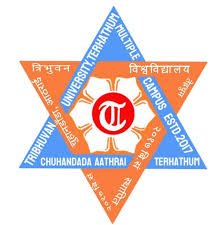


Tribhuvan University (TU)
Kirtipur, Kathmandu
01-4330696 9840004693
The Central Department of Linguistics (CDL), which is part of the Faculty of Humanities and Social Sciences, is located on the Tribhuvan University campus in Kirtipur, Kathmandu. Established in May 1996, its mission is to encourage theoretical and applied linguistics studies leading to M.A. and MPhil-Ph.D. degrees. This is Nepal's only department that provides MA and MPhil-PhD programs in linguistics. The department is well-known in Nepal for its proficiency in teaching and training in a variety of linguistic disciplines. Teaching and research programs aim to provide an in-depth understanding of linguistics and its practical applications in the Nepali environment. The department has successfully established linguistics as a discipline in Nepal.
Since its foundation, the CDL has worked to produce linguistic resources for Nepal's languages. It also works with numerous government and non-governmental groups on many types of research. In addition to doing regular studies on Nepalese languages, the department strives to teach and train students in language and linguistics. Furthermore, the department publishes books, journals, research reports, dictionaries, and lexicons in the languages spoken in Nepal. We greatly appreciate institutions and individuals who supply us with information about their ongoing and completed works in Nepalese.

Dr. Balaram Prasain
It is my great pleasure to express a few words on behalf of the Central Department of Linguistics. The teaching in the department is coupled with the linguistic research of various sorts to complement teaching. We offer various courses on linguistics, such as phonetics, phonology, morphology, syntax, semantics, computational linguistics, historical linguistics, etc. In addition to teaching linguistics, we encourage our students to be engaged in various researches related to the languages of Nepal. The faculties and students have carried out the field works in different languages spoken in Nepal. This has given them opportunities to make studies in diverse areas of language and linguistics, viz. sociolinguistic studies, language planning and policies, psycholinguistics, language documentation, etc. As a result, a number of research outputs, such as glossaries, and grammatical description of lesser-studies languages of Nepal have been prepared. Nepal is home to more than 124 languages and still new languages are being identified. If we focus on the linguistic studies in Nepal, a number of typologically interesting features will be revealed. A number of languages spoken in the remote geographical territories of Nepal have not been well-documented yet. In addition, the programs associated with language planning and policies in Nepal are complicated by the lack of precise language situation of different languages. It is therefore high time to carry out research works of lesser-described languages spoken in Nepal to determine the number of languages, and their dialects based purely on the linguistic evidence. And the language planning and policy should be informed with the sociolinguistic situation of the languages spoken there. The department will take initiatives through research, collaboration, workshops, seminars and linguistic research to address these issues in the coming years. The linguistic research related to the language policy and planning and the language documentation will be salient for the years to come. The department will be happy to collaborate with interested stakeholders to enhance various kinds of linguistic research in Nepal. Now, the technology that has been developed to assist the teaching can be exploited to upgrade the teaching linguistics and researches. I would like to welcome your suggestions for the promotion, and upliftment of linguistic studies and research in Nepal.
Central Department of Linguistics
Kirtipur, Kathmandu
01-4330696
Tribhuvan University
| COURSE | FEES |
|---|